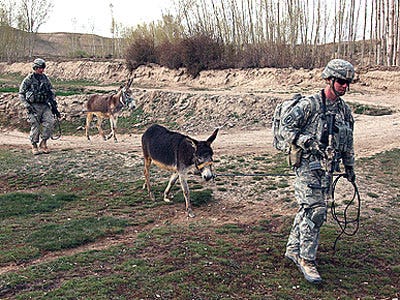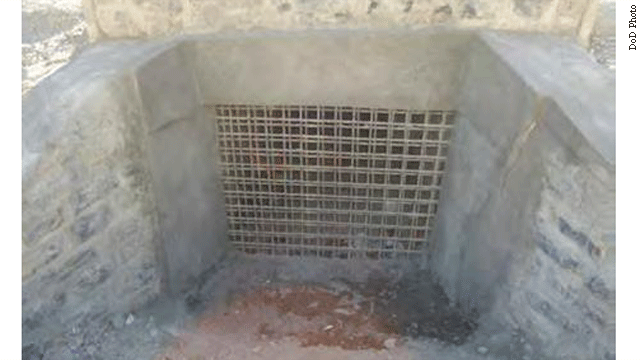by Geoffrey Ingersoll and Michael Kelley

donkey afghanistan
Afghan donkey contractors, some of whom haven't been paid for more than a year, are threatening to bring the war effort to a halt.
Yes, donkey contractors.
Read more @ http://www.businessinsider.com/the-...ar-rests-on-unpaid-donkey-contractors-2012-11


donkey afghanistan
Afghan donkey contractors, some of whom haven't been paid for more than a year, are threatening to bring the war effort to a halt.
Yes, donkey contractors.
Read more @ http://www.businessinsider.com/the-...ar-rests-on-unpaid-donkey-contractors-2012-11



